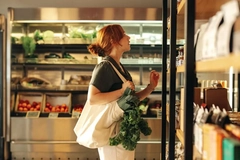Human Rights Watch discovers child labor, exploitation and poisonous chemical exposure at Turkish plastic recycling facilities

22 Sep 2022 --- Children, undocumented migrants and asylum seekers are being compelled to work in dangerous conditions throughout Turkey’s plastic recycling industry, which handles a large portion of Western nations’ trash. These are some key findings from a Human Rights Watch (HRW) report, which details the human cost of the country’s position as a waste handling site for more developed nations.
The report details hazardous working conditions, environmental pollution and human health poisoning in Turkish recycling facilities and calls on political and industry leaders to enforce and change legal systems and closely monitor with whom they do business.
The findings touch on the issue of wealthy Western nations shipping waste abroad to poorer countries that lack sufficient infrastructure to handle and dispose of the waste. HRW authors accuse Western governments, particularly those in Europe, of facilitating the crimes inflicted on vulnerable people in Turkey and the country’s environment.

Dr. Sedat Gündoğdu, chief scientist at Turkey’s microplastic research group, advised HRW in their research and tells PackagingInsights he concurs with the findings.
“The human rights dimension always exists in the [plastics recycling] industry. Lack of standards and primitive working conditions impacts vulnerable communities,” he says.
“This report provided solid evidence about human rights violations in the sector and proof of environmental injustice. The authorities should have strict controls not only for documents but also for working conditions.”
 The EU exports many tons of plastic waste abroad every year in the knowledge its recipients cannot handle it.Illegal labor
The EU exports many tons of plastic waste abroad every year in the knowledge its recipients cannot handle it.Illegal labor
One of the chief concerns raised by the report is that a lack of regulation in Turkey allows plastic recycling companies to use minors or undocumented migrants as a form of cheap labor for dangerous tasks.
The investigators interviewed 26 workers and found nine had begun working as children at recycling centers. Workers in plastic recycling across Turkey told HRW they earn wages significantly below Turkey’s minimum wage and work on average 12 hours per day, six days per week.
Most workers are uninformed about the health dangers of working in cheap plastic recycling facilities, though many – including people living nearby the centers – are developing serious respiratory problems.
These issues are compounded by widespread facility fires throughout the country, which Gündoğdu and his team have long suspected are often caused by arson. Research demonstrates that many of these fires occur under suspicious circumstances and could be started as a cheap means of waste disposal.
Injuries have been recorded in some of the more than 250 facility fires recorded since 2016, but the true human costs (including potential deaths) are unknown.
Recommended changes
HRW has issued a number of recommendations for the Turkish government and its various ministries, European governments and plastics industry stakeholders. Among the numerous points of advice to Turkish authorities and plastic recycling facility owners are demanding that basic laws, which already exist, are enforced.
On top of this, increased investment in public health infrastructure and education about the dangers of certain industry practices is called for. However, beneath these demands is the fact that Western countries continue to inundate Turkey with massive amounts of hazardous plastic waste in the full knowledge the country is ill-equipped to deal with it.
HRW calls on EU countries to enforce a total ban on waste exports and instead handle recycling and disposal domestically. Recently, a study by the Dutch NGO Plastic Soup Foundation found the Netherlands is the EU’s top exporter of plastic waste to vulnerable nations (particularly in Southeast Asia), shipping over 211 million kilograms last year alone.
The EU exported more than 800 million tons in 2021, with Germany being the second worst offender recorded. However, part of this issue is the illicit waste trade, which the European Anti-Fraud Office (OLAF) estimates to be worth over €10 billion (US$9.9 billion) annually – more than the human trafficking trade.
HRW calls for greater EU funding for OLAF and a blanket ban on any plastic waste exported to non-EU countries. Additionally, the report calls for the EU to bolster awareness and transparency of chemical additives in plastic products.
Media clampdown
The brutal conditions endured by many waste workers in Turkey are accompanied by the violent suppression of media investigations.
Recently, PackagingInsights spoke to two independent freelance journalists who reported being attacked, threatened with death and having their media equipment confiscated while investigating allegations of illegal recycling operations in an industrial area in Turkey for a Gezegen24 news article.
Environmental groups have warned that attacks on journalists investigating the alleged illegal management of material waste are increasingly common worldwide.
By Louis Gore-Langton












